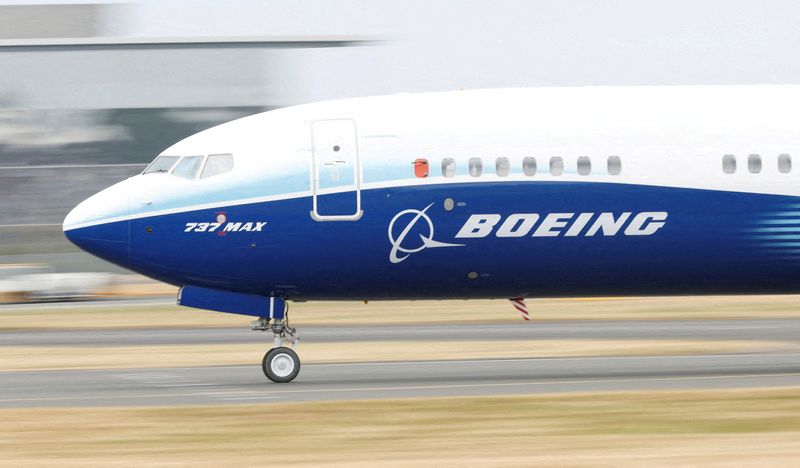(Reuters) -The U.S. Federal Aviation Administration has said it will mandate a fix for a previously signaled Boeing (NYSE:BA) 737 MAX design problem that may theoretically disable the jet's engine anti-ice system, though that's a remote possibility.
The issue, reported on Friday in the Seattle Times, is separate from a directive reported by the FAA last year that requires airlines to limit the use of an engine anti-icing system on the aircraft.
In February, the FAA issued two airworthiness directives related to a condition on the strong-selling MAX and to lay out inspection and repair procedures on the 787.
Airlines had reported a separate issue with a system on Boeing's 787 Dreamliner jets, which has caused what the FAA calls "relatively minor" damage to the engine inlets on about two dozen of the jets in service.
Boeing said in a statement that it discovered the MAX issue during a review of flight deck systems in 2021 and issued instructions to operators in November 2022 to address the potential concern.

The planemaker said it "is a remote concern that has never been seen during decades of service" from the older 737 NG model to the newer MAX.
"Neither is an immediate safety-of-flight concern based on extensive engineering analysis," Boeing said in the statement.